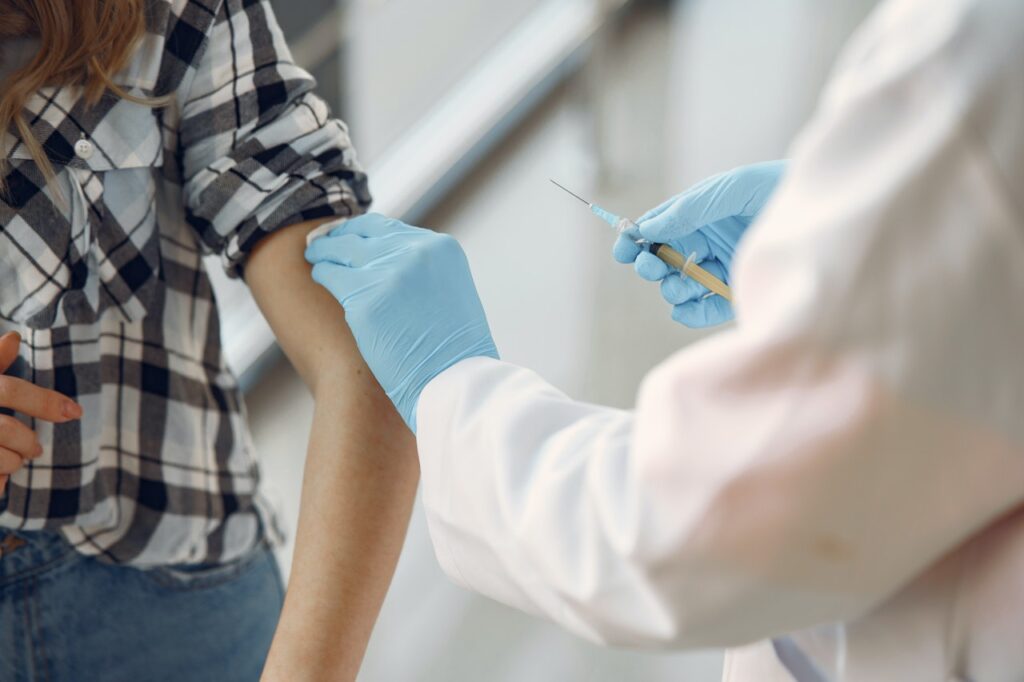
*Nearly 80 million Americans are infected with HPV
Three doses of the Human Papillomavirus (HPV) vaccine can protect children and adolescents against several types of cancer caused in a high percentage by this sexually transmitted virus.
However, in San Mateo, less than 50 percent of that population group has the Human Papillomavirus vaccine.
While the county does not have up-to-date figures, it details that as of 2016, 98 percent of that population group was vaccinated against diseases such as measles, mumps and polio, but did not have the Human Papillomavirus vaccine.
Nearly 80 million Americans, approximately one in four, are infected with HPV, and if they are not properly treated, they could develop cancer.
Nearly all cases of cervical cancer are caused by HPV, and some of vulvar, vaginal, penile, anal and oropharyngeal (throat, tongue and tonsils) cancers, say the Centers for Disease Control and Prevention (CDC).
Overall, HPV is believed to be the cause of about 90 percent of anal and cervical cancers, about 70 percent of vaginal and vulvar cancers and 60 percent of penile cancers.
Cancers in the back of the throat are usually caused by tobacco and alcohol, but studies have shown that 60 to 70 percent may be linked to HPV.
Thus, each year in the United States, about 46,000 new cases of cancer are located in parts of the body where the human papillomavirus frequently attacks and causes about 36,500 of these cancers.
Some HPV types are classified as "non-oncogenic" - wart-causing - or "oncogenic" - cancer-causing - depending on their risk of disease.
The International Agency for Research on Cancer determined that there are 13 types of HPV that can cause cervical cancer; at least one of these types can cause cancers of the vulva, vagina, penis, anus and oropharynx. The types of HPV that can cause genital warts are not the same as those that can cause cancer.
Most people infected with HPV do not know it. HPV infection is usually cleared naturally by the immune system within two years. This occurs with both oncogenic and non-oncogenic types of the virus. By age 50, at least 4 out of 5 women in the US will have had an HPV infection at some point in their lives.
HPV is also very common in men and often carries no symptoms.
It is necessary to remember that HPV is a sexually transmitted infection, and can be contracted and transmitted by having oral, vaginal or anal sex with a person who has the virus.
It is most often transmitted during vaginal or anal intercourse. HPV can be transmitted when the infected person has no signs or symptoms.
Anyone who is sexually active can get HPV, even if they are monogamous. You may also develop symptoms years after having sex with an infected person, making it difficult to know when you first contracted it.
How can HPV and the health problems it can cause be avoided?
Get vaccinated. The Human Papillomavirus vaccine is safe and effective. It can protect both men and women against diseases caused by the virus.
It is very important to get the HPV vaccine at the right age: the CDC recommends that children 11 to 12 years old receive two doses. It is also useful for men up to age 21 who have not received it before and for women up to age 26, if they were not vaccinated when they were younger.
The HPV vaccine is also recommended for homosexual and bisexual men (or any man who has sex with men) up to age 26. It is also recommended for people with depressed immune systems, such as HIV/AIDS, up to age 26, if they did not receive the full schedule when they were younger.
Get screened for cervical cancer. Routine screening in women aged 21 to 65 years can prevent this type of cancer.
If you are sexually active, in addition to getting the HPV vaccine, use a latex condom correctly every time you have sex. This can reduce your chances of getting HPV. However, areas that the condom does not cover can become infected, so the condom may not offer full protection.
You may be interested in: New, more contagious and virulent HIV variant discovered


